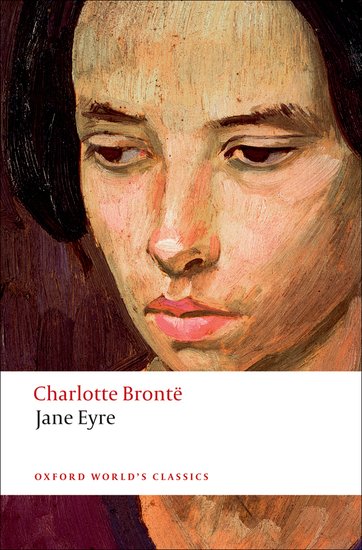 Today marks the 200th birthday of Charlotte Bronte, born April 21, 1816. The author of four novels, poetry, and a number of unfinished works, Bronte is best known for her novel Jane Eyre.
Today marks the 200th birthday of Charlotte Bronte, born April 21, 1816. The author of four novels, poetry, and a number of unfinished works, Bronte is best known for her novel Jane Eyre.
Beloved by countless women readers and Hollywood filmmakers, Jane Eyre is sometimes dismissed as mere pulp fiction for the literary set. But beneath the surface-level romance, Jane Eyre offers a profoundly philosophical portrait of the modern self. In fact, the novel embodies to a remarkable degree the modern quest for self-creation described by Charles Taylor in The Ethics of Authenticity.
Quest for the Authentic
Authenticity as a moral value emerged in the late 18th century, rooted in Enlightenment subjectivity. Authenticity was connected to “self-determining freedom,” another moral value of the age, which Taylor describes as the impulse to “decide for myself what concerns me, rather than being shaped by external influences.”
Not coincidentally, it was also around this time that the novel developed as a literary genre—a form expressive of modernity, particularly individual autonomy and subjectivity. Bronte’s 1847 publication of Jane Eyre marks a point at which the rise of the novel and the rise of the modern notion of the self converge.
Centered on the heroine’s quest for her authentic self, Jane Eyre depicts what Taylor calls “the massive subjective turn of modern culture, a new form of inwardness, in which we come to think of ourselves as beings with inner depths.” Before the modern age, being “in touch with some source—God, say, or the Idea of the Good—was considered essential to full being.” The modern shift, however, replaced this external source of authority with the notion that “the source we have to connect with is deep in us.”
Finding Herself through Finding Her Voice
Jane Eyre reflects this inward turn through masterful use of first-person narration—Bronte’s primary contribution to the novel form. In fact, most critics and readers agree Jane’s voice—not the overly romantic plot—makes an otherwise unrealistic story so compelling and believable. Her powerful voice illustrates Taylor’s observation about the “dialogical character” of the human condition in the modern age:
We become full human agents, capable of understanding ourselves, and hence of defining an identity, through our acquisition of rich human languages of expression. . . . No one acquires the languages needed for self-definition on their own. We are introduced to them through exchanges with others who matter to us.
Jane comes to find her own voice—and therefore her authentic self—through just such a dialogical process: first through verbal (as well as physical) conflict with her cruel aunt and cousins; then through the first true Christian she befriends, her schoolmate Helen Burns; followed by spirited repartee with her employer, superior, and eventually beloved, Mr. Rochester; but most significantly, with her inner self as she struggles to discover and define who she really is.
Jane’s journey—from being an orphan abused by a cruel aunt, to being a student at a deplorable charity school, to being a lowly governess in love with a wealthy employer—is one in which she seeks love from others, but not at the cost of sacrificing her individual identity or self-respect. Hence Jane embodies modernity’s “new importance to being true to myself” as a “certain way of being human that is my way . . . not in imitation of anyone else’s.”
Authenticity Turned Outward
This search for originality—particularly by a female character, and a strong, singular one at that—alarmed some of Bronte’s contemporaries. One review declared that the depiction of a “natural heart” is the “great and crying mischief of the book.” A few years after its publication, another critic fretted, “The most alarming revolution of modern times has followed the invasion of Jane Eyre.” This critic seems to have rightly perceived that a quest for self-creation like the one Jane undertakes courts radical autonomy. And, as Taylor explains, a quest for the authentic self detached from “horizons of significance” outside the self leads to relativism and, ultimately, insignificance:
The agent seeking significance in life, trying to define him- or herself meaningfully, has to exist in a horizon of important questions. That is what is self-defeating in modes of contemporary culture that concentrate on self-fulfillment in opposition to the demands of society, or nature, which shut out history and the bonds of solidarity. . . . To shut out demands emanating beyond the self is precisely to suppress the conditions of significance, and hence to court trivialization.
But while authenticity and autonomy seem inextricable, they aren’t, as Jane’s character powerfully shows. Jane embodies Taylor’s notion of the genuine authenticity possible for the modern subject, one achieved only by looking outside the self. True self-fulfillment, Taylor explains, is derived “against the background of things that matter” with attention to “the demands of our ties with others”:
Only if I exist in a world in which history, or the demands of nature, or the needs of my fellow human beings, or the duties of citizenship, or the call of God, or something else of this order matters crucially, can I define an identity for myself that is not trivial. Authenticity is not the enemy of demands that emanate from beyond the self; it supposes such demands.
This is precisely the genuine authenticity Jane portrays.
Tempted and Tried
Throughout the novel, Jane is tempted to betray her true self by imitating the ways of others. She’s tempted to imitate her beloved Christian friend Helen Burns by embracing Burns’s otherworldly stoicism. She’s tempted to imitate her cruel aunt by returning an unforgiving spirit. She’s tempted to imitate her cousin in marrying not for love but for service on the mission field. She’s tempted to imitate her beloved by compromising her Christian faith in order to remain with him. But, despite pain and struggle, Jane resists each of these temptations to be something other than her true self.
For unlike many subjects lionized in great modern literature, Jane’s true self is rooted in something outside herself. And that something is God. (Bronte was, after all, the daughter of a clergyman.) When Jane realizes that to be her authentic self she must choose between passion and principle, she determines:
I will keep the law given by God; sanctioned by man. I will hold to the principles received by me when I was sane, and not mad—as I am now. Laws and principles are not for the times when there is no temptation: they are for such moments as this, when body and soul rise in mutiny against their rigor; stringent are they; inviolate they shall be. If at my individual convenience I might break them, what would be their worth?
Jane’s self-determination does make her a modern, self-created subject. But because she turns outward rather than inward, she achieves the genuine authenticity Taylor describes. In using her sense of self and her moral agency to become the person God calls her to be, Jane achieves genuine authenticity and true freedom. And in portraying a character whose self-creation is rooted in something outside the self, Bronte offered a great gift to the modern world.
Two hundred years after her birth, Bronte’s gift is perhaps more timely than ever.
Editors’ note: Don’t miss our 2017 National Conference, April 3 to 5 in Indianapolis. Karen Swallow Prior will be leading a workshop on “The Virtues of Reading: How Great Books Cultivate Virtue and Promote the Good Life.” Register today!
Is there enough evidence for us to believe the Gospels?
 In an age of faith deconstruction and skepticism about the Bible’s authority, it’s common to hear claims that the Gospels are unreliable propaganda. And if the Gospels are shown to be historically unreliable, the whole foundation of Christianity begins to crumble.
In an age of faith deconstruction and skepticism about the Bible’s authority, it’s common to hear claims that the Gospels are unreliable propaganda. And if the Gospels are shown to be historically unreliable, the whole foundation of Christianity begins to crumble.


































